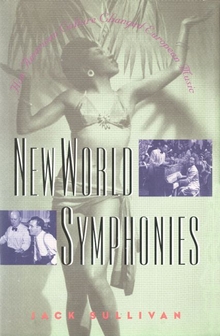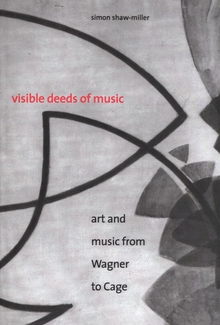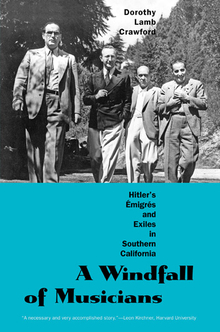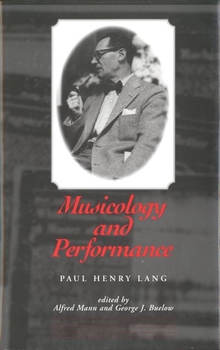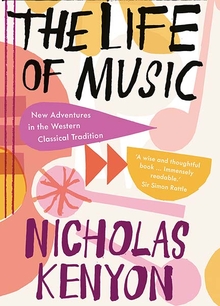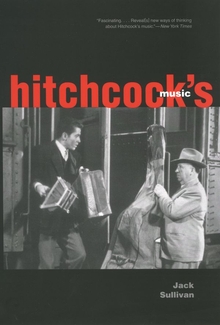New World Symphonies
WARNING
You are viewing an older version of the Yalebooks website. Please visit out new website with more updated information and a better user experience: https://www.yalebooks.com
How American Culture Changed European Music
Sullivan brings popular and canonical culture into his wide-ranging discussion. He explores the effects on European music of American authors as diverse as Twain, DuBois, Melville, and Langston Hughes, examining in particular Dvorák’s fascination with Longfellow, the obsession of Debussy and Ravel with Poe, and the inspiration Whitman provided for Holst, Vaughan Williams, and dozens more. Sullivan uncovers the African American musical influence on Europe, beginning with spirituals and culminating in the impact of jazz on Stravinsky, Bartók, Walton, and others. He analyzes the lure of Hollywood and Broadway for such composers as Weill, Korngold, and Britten and considers the power of the American landscape—from the remoteness of the prairie to the brutal energy of the American city. In European music, Sullivan finds, American culture and mythology continue to resonate.
"A fascinating account of a subject whose importance can no longer be ignored. Sullivan writes with extraordinary insight about the influences of Broadway and Hollywood on classical music and, most impressively of all, about the influence of jazz. This is a decisive book."—Perry Meisel, Professor of English, New York University
"Congenial, lively, and informative, Jack Sullivan’s New World Symphonies explores how serious European composers, from Dvorák and Delius to Britton and Tippet, have drawn inspiration from America’s indigenous musical culture."—Morris Dickstein, City University of New York
"Mr. Sullivan’s most fascinating example is how deeply French impressionist composers like Debussy and Ravel were affected by Edgar Allan Poe. . . . This is rich and heady stuff, full of oddities pointed out by Mr. Sullivan. There is something phantasmagorical about these relationships with their shifting identities, rebellions, and yearnings. . . . Mr. Sullivan’s descriptions are sure and telling. And his accumulating anecdotes and portraits end up suggesting something about our current predicament."—Edward Rothstein, New York Times
“Sullivan’s highly infectious commitment to his subject—the intimate relation between European music and American men of letters—invites the reader in.”—Glenn Watkins, author of Soundings: Music in the Twentieth Century
"An engaging look at the influence of American literature, spirituals, jazz, and other forms in works by Britten, Coleridge-Taylor, Debussy, Delius, Hindemith, Ravel, Stravinsky, Varese, Weill, and numerous other British and Continental composers."—Nina C. Ayoub, Chronicle of Higher Education
"In this fascinating volume, Sullivan writes persuasively about several specific areas of influence, beginning with Dvorak’s embrace of Native American melodies and African American spirituals in the 1890s. . . . The great value of the book lies in his remarkable perspectives on the relationship of literature and music and his beautifully crafted prose. Recommended for Americana and music collections."— Library Journal
"A brief but far-reaching book about cross-cultural influences. Dealing with literature, music, even mythology, Sullivan opines that the influence of America on the Old World was more profound than vice versa, and this assertion makes his book different from the usual Euro-originated views of the phenomenon. Sullivan offers many detailed examples of New World-Old World cultural interrelations. . . . An . . . agreeable read."—Publishers Weekly
"By wending his way carefully through the music . . . Sullivan demonstrates how much fodder America has provided for romantic, impressionist, and contemporary European composers."—Alan Hirsch, Booklist
"Quite apart from a new perspective on European composers, Sullivan leaves the reader with a fresh appreciation for what it means to be American. . . . Sullivan persuades us to see a touching idealism in the European longing for all things American and to view our country's appeal, if not its actions, with new insight and a kind of involuntary respect."—Dan Blue, San Francisco Examiner Chronicle
"A lively and entertaining book on an important paradox that has not been sufficiently remarked upon. . . . Sullivan writes better than most musicologists, draws from a vast score of entertaining anecdotes, and displays an ear for the telling remark. . . . New World Symphonies succeeds where too many other books on music fail: It makes you want to hear the music it's talking about."—Richard Dyer, Boston Globe
“If there is one thing musicians find absolutely irresistible, it is the outrageous anecdote about another (preferably very famous) musician—the more schmaltzy, detailed or idiosyncratic the tale, the better. . . . New World Symphonies is stocked with such kindling. In fact, there is enough material here to keep us all feeling warm and fuzzy throughout our entire winter tours.”—Tony Quarrington, Literary Review of Canada
Publication Date: March 11, 1999
17 b/w illus.

